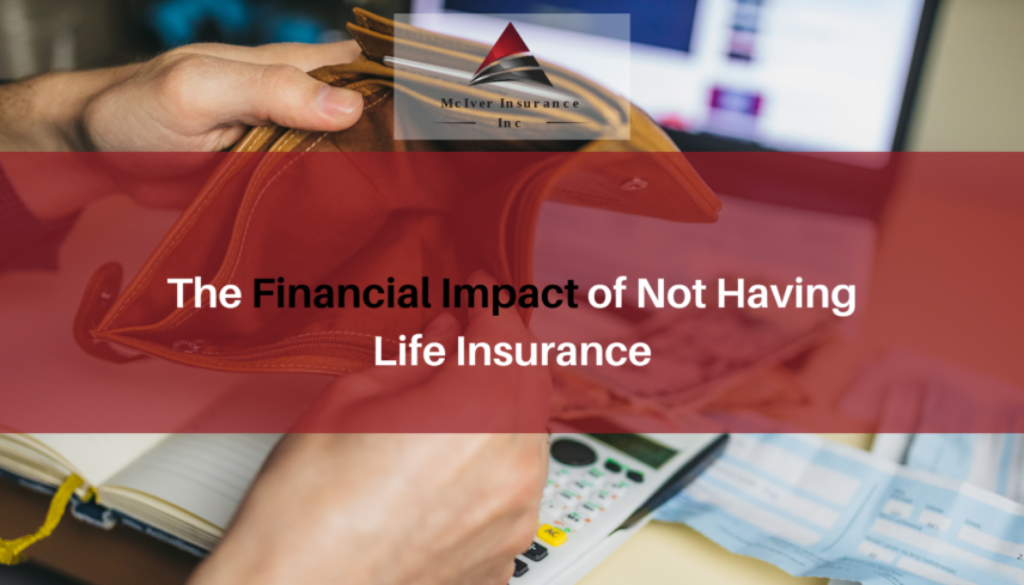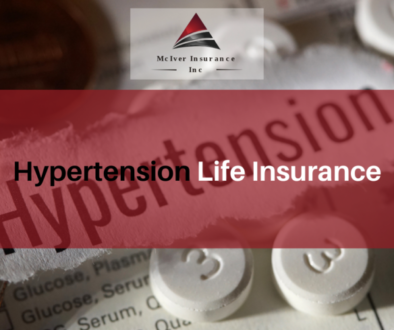The Financial Impact of Not Having Life Insurance
Without life insurance, you risk leaving your dependents and loved ones without any financial protection in the event of your untimely death.
This is why most Canadian families opt for an individual or group life insurance policy to financially protect their loved ones from a sudden loss of income, unforeseen debts, and funeral costs in the event of death.
But what if you choose not to have life insurance? What financial impacts can that have on the well-being of your loved ones should you pass away unexpectedly?
In this article, we will answer these questions and a whole lot more as we evaluate just how important life insurance is, its benefits, and supposed drawbacks.
What Is Life Insurance? What Does It Entail?
Life insurance is a financial product that works as a contract between a policyholder and an insurance provider. As per this contract, the insurance company is liable to pay a death benefit of a pre-agreed amount to the policyholder’s beneficiaries in the event of their death. In exchange, the policyholder has to pay a monthly or annual premium to the insurance company for this financial protection.
An insurance policy can either be term-based, in which case the policy expires after a certain number of years (10, 20, 30, etc.), or it can be a whole life insurance policy that has no set term and lasts until the policyholder passes away.
Term-based life insurance is by far the most common type of life insurance policy as it tends to have much lower premiums as compared to whole life insurance. Term-based policies can also be renewed when nearing the end of their term for continued protection and peace of mind. However, if you forgo a life insurance policy at any time your beneficiaries will no longer be entitled to any death benefit in the event of your death.
Potential Financial Impacts of Not Having Life Insurance!
Some people believe life insurance is overly expensive and unnecessary. However, this isn’t the case. Term-based life insurance is not only affordable but can be incredibly beneficial for your loved ones in case you die unexpectedly.
Here are six potential financial impacts of a life without life insurance.
Economic Strain On Dependents
Not having life insurance puts a massive economic and financial strain on your loved ones and family members making it difficult for them to cope with day-to-day expenses, funeral costs, and outstanding debts.
If you are the sole earner and have dependents the need for life insurance is more paramount than ever. How will your dependents survive if something were to happen to you? How are they going to pay for monthly expenses including food, utilities, clothing, and more?
Having a life insurance policy can give you the peace of mind of knowing that if you were to die unexpectedly the death benefit paid out by your life insurance policy would be enough to cover your funeral costs while still leaving behind a sufficient sum of money to help your dependents with day to day expenses and help them maintain the same standard of living.
Can Leave Your Dependents Trapped In Debt
If one dies, their debt doesn’t disappear. Some liabilities move on to the next of kin, such as mortgages, car payments, etc. The last thing you want is to leave your dependents with a mountain of debt and no way of paying it off.
With the right insurance policy, you can ensure that in the event of your death, your dependents can pay off all outstanding liabilities with the death benefit they receive. This can protect them from not being repeatedly harassed by debt collection agencies.
Can Result In An Unsecure Future For Your Children
Without a life insurance policy, your children are only going to receive whatever assets and liabilities you leave behind for them in your will. In most cases, the assets or inheritance you leave behind can’t be liquidated immediately or isn’t enough to secure the future needs of your children, such as their education fees for when they decide to go to college or university.
With the right insurance policy, you can ensure that a certain portion of the death benefit is kept for your child’s post-secondary education and only granted to them when they are ready to set off for higher studies.
A life insurance policy can be an instrumental tool in financial planning and even estate planning as it can offer control over how the death benefit is to be paid out and when. This can help you leave behind a lasting legacy and give your children the best chance for a bright future.
Missing Out On Tax-Benefits
One of the biggest benefits of a life insurance policy is that it has several tax benefits. The premium you pay for your life insurance is paid out of pre-tax income and the death benefit or maturity benefit (received at the end of a policy term) are also non-taxable.
Depending on your financial circumstances opting for a life insurance policy can help you save money on taxes effectively lowering your cost of premiums.
Makes Retiring A Lot Harder
For you to have a comfortable retirement it is essential to save for retirement as early as possible. Investing in an RRSP, TFSA, and other retirement savings accounts can ensure you have a steady flow of income as you live out your golden years.
With life insurance, you can also have the peace of mind of knowing that in the case of your death, your surviving partner and other dependents will receive a substantial death benefit that can continue to provide them with the financial security they need even if you are no longer around allowing you to live large and not worry about saving even in your retirement years.
What Life Insurance Policy Is Best For You?
Delaying the purchase of a life insurance policy can not only put your dependents at risk but also result in you having to pay higher premiums when and if you do decide to opt for one.
Sure, life insurance isn’t always at the top of our priority list but it should be. Purchasing a life insurance policy sooner rather than later can have many advantages and is something you shouldn’t procrastinate over.
However, figuring out what life insurance would be best for you requires careful planning and deliberation. This is why before opting for a policy you should always speak to a life insurance specialist who can break down your financial circumstances, priorities, and financial needs to find you a policy that is right for you.



